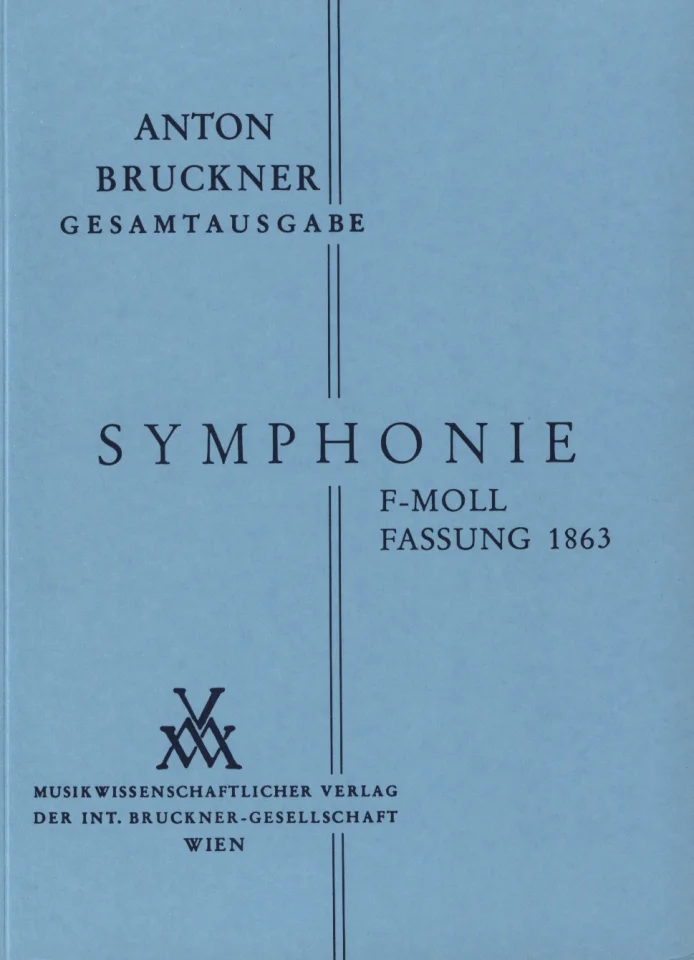Bruckner: Symphony 00
Not many really wish to discuss Anton Bruckner's Symphony in F minor, sometimes referred to as Symphony no. 00. The work is a student exercise in symphonic construction, thus it bears the sobriquet 'Study Symphony'.
Most point to Robert Schumann as the main influence of Symphony 00, although Mendelssohn is also mentioned. It should be noted that it will be some time before Johannes Brahms and Gustav Mahler fully produce their first symphonies, although both Franz Liszt and Richard Wagner will have had quite a bit of music gain success. Berlioz too, although it sounds as if Bruckner was rather unaware of trends in music before studying composition.
Thus, Bruckner symphony lovers should keep their expectations low listening to his Symphony in F minor, for the composer is not worried about an individual symphonic voice in this work. Rather, it seems he wishes to flesh out process and structures of the genre, perhaps to appease his teacher, or to get a little experience under his belt. Truthfully, most consider Bruckner's Symphony no. 3 to be the point at which he has found his true symphonic voice.
What we do have is a 45-minute, four-movement symphony set in the key of F minor. To my ears, Symphony no. 00 is the composer's 'Pastoral' symphony. It is not concerned with imperious orchestrations or structures, and its content is generally lighthearted. If there is a movement which might remind listeners of the more mature composer, it would probably be the third-movement Scherzo, a portion of the symphony which Bruckner was famed for. One can certainly hear the sproutings in this work.
If you notice a wide range of timings across recordings of this symphony, it is due to repeats in all of the movements. A few take all of the repeats, while others acknowledge none. Some will take the middle ground by observing the second- or third-movement repeats to round out the Scherzo-Trio format. Thus, you will see timings anywhere from 35 minutes to 50 minutes in length.
One of the older CD generation recordings comes from Eliahu Inbal on Teldec who prefers an expansive approach with repeats, whereas the enterprising set from Georg Tintner on Naxos is more swift with the music without repeats. Newer recordings from Markus Poschner enjoy traveling the speed lane in a muscle car without repeats, while Gerd Schaller is more about the long journey with repeats. If looking for the idiosyncratic route, Gennady Rozhdestvensky remains one of the longest performances, plus the unique timbres of his Soviet orchestra are singularly interesting in Bruckner.
1992: Inbal
1998: Ashkenazy
2001: Skrowaczewski
2015: Schaller
2021: Thielemann
2022: Poschner
For now, we will have a
very basic list of Bruckner reviews above. Those recordings I mentioned as an example in the text above, or performances I have come to respect which await future reviews, are listed above in greened bold. My actual reviews can be found in the typical Oozy Keep orange. Until we at The Oozy Channel Keep
have gotten ourselves up and running, this should suffice and we can
reorganize the page a little more coherently in the future.

